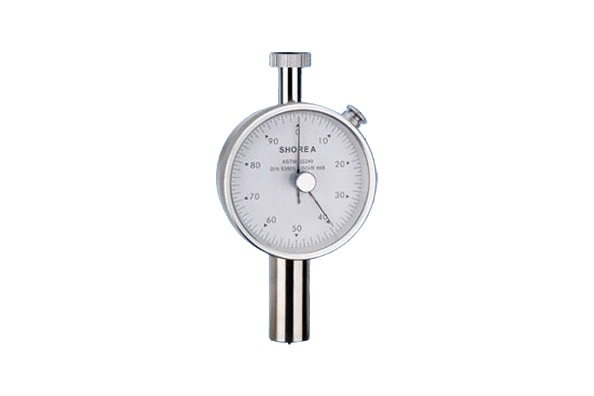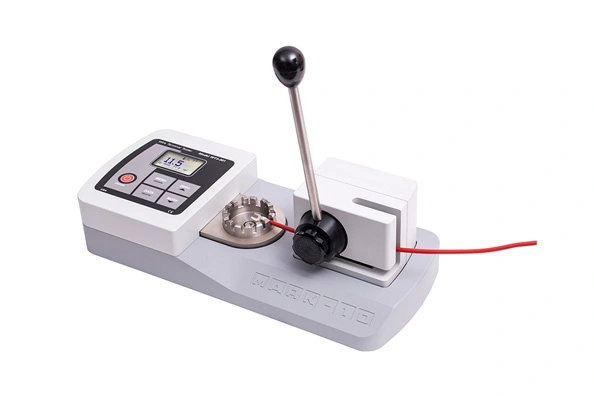A Lee hardness tester is a metrological and testing instrument used to measure the hardness characteristics of metal materials. It is based on the Leeb hardness test theory and combines advanced microelectronic technology. It can be used for testing metal materials with a wide hardness range and is especially suitable for measuring the hardness of large, heavy, non-detachable, confined space, different orientation, and special parts of workpieces.
The basic principle of the portable leeb hardness tester is: using an impact body of specified mass, the surface of the sample is impacted at a certain velocity under the action of elasticity, and the hardness of the sample is calculated by the ratio of the rebound velocity to the impact velocity at a point 1mm from the sample's surface. The calculation formula is: HL=1000*(VB/VA)
Applications of the Lee hardness tester
Installed mechanical parts or permanently assembled components
Various rolling mills, large workpieces; failure analysis of parts of pressure vessels, turbines, and generator sets
Inspection of large bearings and other large parts on production lines
Material differentiation in metal material warehouses
Hardness testing of large molds and parts after heat treatment, etc.
Characteristics of the Lee hardness tester
High precision, with normal instrument and operation ensuring ±0.8%
Wide applicability, suitable for steel, iron, copper, aluminum, and their alloys
The measurement direction can be chosen arbitrarily according to the site conditions, the instrument is lightweight, and the operation is simple
The measured HL hardness value can be automatically converted to Brinell and Rockwell hardness values as needed and can display or print single and multiple average hardness value results automatically
Criteria for choosing a Lee hardness tester
First, we need to understand the specifications and physical properties of the workpiece to be tested, such as size, thickness, and surface roughness. The material of the workpiece can also affect the test results differently. For example, special materials like aluminum, copper, and tool steel have different rebound moduli, making the choice of impact device crucial for the test results.
Pay attention to the following features of the Lee hardness tester
Interchangeability of impact devices
One main unit of the Lee hardness tester can be configured with seven different types of impact devices; several of the same type of impact device can be configured on one main unit.
Replaceability of the impact tip
The impact tip of the instrument's impact device is replaceable. The impact tips of the same type of impact device can be interchanged without affecting the test values.
The instrument does not have adjustability
After factory release, the Lee hardness tester does not have adjustability. If measurement values are inaccurate due to wear on the ball head, replacing the ball head should be the method to solve this issue.
The instrument's measurement error meets standard requirements across the full range of hardness
The instrument's measurement error meets the standard error requirements across the entire hardness range from low to high.
The portable Leeb hardness tester from Lanetech, a leading and experienced hardness tester factory in China, is a handheld device used for measuring material hardness. It is designed for on-site or field use, providing quick and accurate hardness readings without the need for laboratory tests. What are the advantages of using a portable Leeb hardness tester?
Portability
One of the main advantages of the portable Leeb hardness tester is its portability. It is a handheld device that can be easily carried to different locations for on-site hardness testing. This eliminates the need to transport samples to a laboratory, saving time and cost.
Instant results
The portable Leeb hardness tester provides instant hardness readings. This allows for immediate evaluation of material hardness, facilitating quick decision-making and problem-solving. It is especially useful in situations where real-time hardness information is needed for quality control or maintenance.
Ease of use
These testers are designed to be user-friendly and easy to operate. They typically feature simple controls and an intuitive interface, making them accessible for both experienced professionals and non-experts. This ease of use ensures efficient and accurate hardness testing even for individuals without extensive technical knowledge.

 français
français Español
Español русский
русский العربية
العربية português
português


